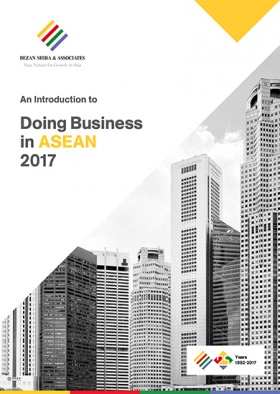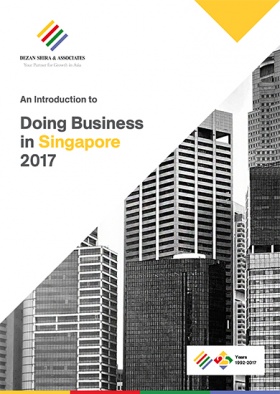Q&A: Using Singapore as a Regional Hub for Managing ASEAN Operations
As ASEAN continues to integrate, Singapore’s importance as the entry point for investment is likely to increase. In this article, we aim to answer some of the most commonly asked questions regarding Singapore’s use as a hub for the management of regional operations throughout ASEAN.
Question: Why has Singapore risen as a destination for the management of ASEAN expansion?
Answer: A myriad of factors contributed to making Singapore among the most attractive economies for investment in Asia. Effective administration of regional operations, integrated supply chain and minimized tax obligations allow Singapore to easily outcompete traditional holding locations such as Malaysia and fellow ASEAN members alike.
Q: What is the benefit of routing investments through Singapore?
A: Companies operating in ASEAN might find that the cost of transferring profits back to their home country has increased in the absence of up to date DTAs.
By contrast, with many DTAs in place and 0 percent withholdings tax of its own on dividends, Singapore allows companies to remit profits from production centers at a lowered rate and then pass profits on to a parent company without further reduction.
Q: What are the options for corporate establishment in Singapore?
A: Setting up a private limited establishment in Singapore is the most effect option for administering operations throughout ASEAN, whilst other options such as representative offices, publically listed companies, and joint ventures are also available for foreign investors. The structure of the private limited establishment allows companies owners to maintain full control of regional operations but limit their liability in case of a conflict with its subsidiaries in third party states.
Q: What steps are involved when establishing a company in Singapore?
A: Companies investing in Singapore must first obtain approval for the company’s name, which should not be identical to a name already exists. Secondly, all private limited companies are required to appoint a director, company secretaries and auditors. The next thing on the list is to set up an office within Singapore’s city limits. They then must formally register with the Accounting and Corporate Regulatory Authority. While specific companies might face additional licensing or need to submit further documentation, all companies are subject to a variety of compliance requirements including holding the first annual meeting within 18 months of incorporation.
Q: What are some common licensing requirements that investors might face upon entry into Singapore?
A: Depending on the nature of the work that a company wishes to conduct within Singapore, additional documentation and licensing may be required.
Among them, the most common ones are Business Activity License required for most firms operating within the country and Occupational License required for professional services such as lawyers, accountants and securities traders. Other documents also include a Compulsory License required for specialized fields such as travel agencies, school and employment agencies and a Certificate of Corporate Residency which is required for companies seeking to tap into Singapore’s DTAs.Q: How can firms in Singapore offset their international taxation?
A: Currently those incorporated within Singapore and holding a Certificate of Residence (COR) will be able to choose between two methods, the credit method and the exemption method, in order to offset their international taxation. Under the credit method, Singapore will typically grant a foreign tax credit (FTC) to an entity that has paid taxes on business profits derived in the source state. The entity can then offset that FTC against its tax liability in Singapore. Under the exemption method, business profits that have already been taxed in the source state will typically be exempted from taxation in Singapore altogether.
For additional information on using Singapore as the regional hub for your ASEAN operations, see more questions and answers on Dezan Shira & Associates’ Knowledge Sharing Platform, read our recent ASEAN Briefing magazine, or contact our specialists at asean@dezshria.com.
About Us
ASEAN Briefing is produced by Dezan Shira & Associates. The firm assists foreign investors throughout Asia and maintains offices throughout ASEAN, including in Singapore, Hanoi, Ho Chi Minh City and Jakarta. Please contact us at asia@dezshira.com or visit our website at www.dezshira.com.








